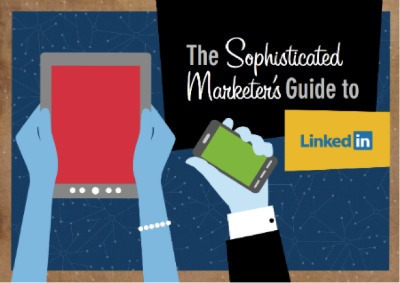
While the world is more connected than ever, it’s also more cluttered than ever. Yes. It’s the age of information overload, and competition to get noticed is fierce. As a result, marketers are focusing on creating scalable content that gets shared more often and reaches more people by using influencer content programs.
Influencer marketing often refers to celebrities or brandividuals advocating for a brand. Influencer content goes beyond advocacy to focus on the actual content being produced for marketing. Influencer content isn’t something new, but the digital era has changed how it’s used. Influencer content marketing in its current form started gaining momentum in 2014, and it’s now the fastest growing and most cost effective marketing channel.
Why? Simple. It works. According to a study by Tomoson, an influencer marketing platform, businesses are making $6.50 for every dollar spent on influencer marketing. In addition, 51 percent of businesses reported acquiring better customers through influencer marketing efforts.
Definition of Influencer Content
Influencer content is content that is created in collaboration with subject matter experts and industry authorities—influencers. As a content marketing tactic, influencer content aims to reach new or larger audiences by leveraging the credibility and social followings of those experts.
Collaboration with influencers can take on a couple different forms:
- Content can be co-created with the help of the influencer.
- Content can be created by the brand using a quote or contribution from an influencer.
- Content can be created by the brand for the influencer’s blog, website or another publication.
Influencer content can work closely with earned media. Earned media is any unpaid publicity, mention or recognition you receive from a third party such as a news article, customer review or social media mention.
Pros
Influencer content programs are proving to be one of the most effective marketing tactics around. Here are some of the benefits of using influencer content as a content marketing tool:
- Influencers are trusted by their followers and they can lend major credibility to a brand.
- Influencer content allows you to tap into trusted authorities’ audiences and reach more people.
- While influencer marketing can involve paid agreements with influencers, a lot of times influencers will market your content for free if it’s good quality and useful to their audience.
Cons
While influencer programs can be wildly successful, there are some downsides to consider before adding it to your content marketing strategy. Here are some of the downsides of influencer content programs:
- Influencer programs are all about relationship building and then nurturing those relationships, and that is incredibly time consuming.
- While influencers have an engaged following, that doesn’t guarantee your message will resonate with their following.
What Marketing Professionals Have to Say About Influencer Content
“Whether you are co-creating something new or including a simple quote from someone who is well-known in your space, incorporating influencers into your content marketing efforts is a win-win. It allows you to capitalize on your influencer’s brand, thought leadership, ideation, and reach so you can create more content and ensure you reach a broader audience. ”
Amanda Maksymiw, Senior Content Marketing Manager, Lattice-Engines
“Influencers have long-standing relationships with their audiences and provide a platform for brands to have the appropriate voice, time and lasting influence with consumers. As social media has progressed from a marketing afterthought to an integral marketing strategy, today’s influencers have expanded onto digital platforms, bringing unprecedented value to a specific audience segment through their large communities of trusting followers, authentic personal experience and expertise on a variety of social networks.”
American Marketing Association (Source: ama.org)
“Trusted relationships with the right industry influencers are key to ensuring brand content is relevant to customers. Influencers stay ahead of industry trends and have a pulse on what matters most to their readers, so they can be tremendously insightful in steering brand content strategy.”
Shelley Ryan, Global Content Strategist, Dell
Examples of Influencer Content

A great example of influencer content is the The Sophisticated Marketer’s Guide to LinkedIn. Influencers were included in the creation of the guide and it was promoted and repurposed through multiple channels. With both influencers and content communicating the value, visibility of LinkedIn as a marketing solution resulted in a huge ROI on the program and millions in new revenue.
Ray N. Welter Heating Company

This Minneapolis-based HVAC service company wanted to increase community engagement to build brand awareness using influencers. Since Welter Heating falls in a niche industry, many influencers are actually competitors.
The first influencer post was “Thermostat Wars! Local Celebrities Tell Us What They Set Their Thermostat To,” and featured local news meteorologists, a news anchor and a young rapper/musician. Each influencer included in the campaign had a significant social media following and was easily recognizable to local residents. In just the first two weeks after publishing, this article had taken the number 2 spot behind the homepage as the most visited page on the site. See the full case study here.
Genealogy Research Firm

A leading genealogy research firm leveraged their attendance at an annual industry event to to take advantage of the engaged audience of attendees. Influencers collaborated to create a blog post with tips for creating the best genealogy project, with the goal of driving traffic to a priority page on the firm’s website. As a result, within two weeks the target page received 5,509 pageviews and the blog post itself earned 8,000 pageviews—which is two-times the average. In addition, more than 600,000 people were reached on Twitter.
Best Practices
- Define your influencer goals. Identify how you want to use influencers to contribute and promote your content. This will help you plan your outreach initiatives and your overall marketing timeline.
- Be smart when selecting topics. The content topics you choose will also have an effect on who you’ll focus on during the outreach process. Focus on concepts that are relevant and will make your influencers want to care, interact, contribute and share your content.
- Identify how those topics will be presented. Are you planning a series of blog posts? An eBook? A social media promotion? Define what form you content will take on..
- Thoroughly research prospects. Make sure you do your homework on potential influencers to ensure they align with your goals. You’ll want to look at how large their social followings are and how often they interact with those followings, as well as their own content creation efforts.
- But, remember audience size isn’t everything. Influencers don’t have to have a huge following to be considered for your campaign. This is why looking at interaction between them and their audience are important. Are they responding to tweet mentions? Are they sharing other people’s content on social? Do people comment on blog posts?
- Start courting before you ask for help. One of the core values of influencer marketing is relationship building. If you’re able to build some type of rapport with an influencer early on, you’ll have more success when you ask for help later. Influencer relations doesn’t happen overnight, so think long-term.
- Co-create content whenever possible. The opportunities to collaborate are only limited by your imagination and creativity. Influencers will also be more likely to share and promote this type of content.
- Amplify your content by making it easy to share. Provide influencers pre-written tweets, embed codes, images or short URLs so they have everything they need to promote right in front of them.
- Optimize for people and SEO is another core value of content marketing. All content should be optimized for people and search engines.
- Measure success. It’s crucial to analyze if your efforts are helping you reach your goals. Use social network shares and mentions, blog pickups, and direct and referral traffic metrics, as well as conversions to see how effective your content is.
- Don’t forget about your audience. Focusing on the customer, rather than just the influencer, will help brands achieve the most success. Remember, influence doesn’t matter if the message doesn’t connect with consumers.
Software & Resources
While influencer marketing in the digital age is still gaining some speed, there are already an unbelievable number of resources and platforms available for marketers—some free and some for a fee. Here are some of the most well-known:
- Traaker
- TapInfluence
- Speakr
- Crowdtap
- Tomoson
- Mavrck
- Zoomph
- Exposely
- Hey Press
- Notey
- Buzz sumo
And, of course, the TopRank Marketing Blog. Influencer content programs are an integral part to many of our clients’ strategies and we’ve written a number of influencer marketing articles.
In today’s digital world, cutting through the clutter and connecting with people is a challenge for every brand. Influencers can help overcome that challenge by lending their audiences and their credibility. However, influencers can’t guarantee engagement. So, marketers need to continue to focus their content marketing efforts on the people they’re trying to reach.
Does your content marketing strategy include influencer content? Why or why note? Share your thoughts in the comments section below!
Did you like this post? If so, check out our content marketing tactics index page with links to over 25 helpful posts just like this one!
Disclosure: LinkedIn, Dell and Welter Heating Company are TopRank Marketing clients.
Header image via Shutterstock
![]() Gain a competitive advantage by subscribing to the
Gain a competitive advantage by subscribing to the
TopRank® Online Marketing Newsletter.
© Online Marketing Blog - TopRank®, 2015. | Content Marketing Tactics: Influencer Content Pros, Cons, Examples and Best Practices | http://www.toprankblog.com
The post Content Marketing Tactics: Influencer Content Pros, Cons, Examples and Best Practices appeared first on Online Marketing Blog - TopRank®.
No comments:
Post a Comment